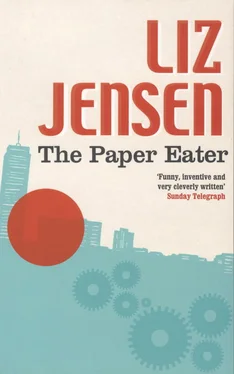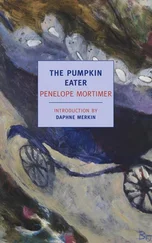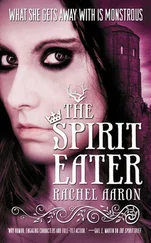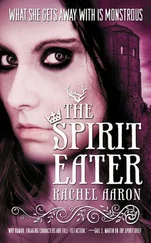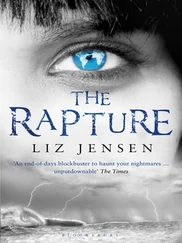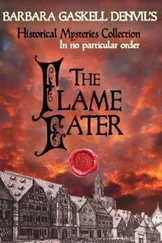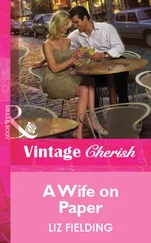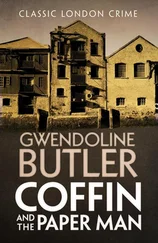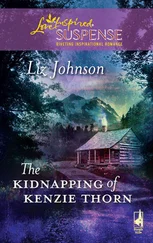He looked doubtful.
– I have two types of dream, I said. Sky dreams, which are about flying through the sky with my family, and dreams about parking. Which are about parking.
That seemed to satisfy him.
Later in the day, he said – Multi-storey, or kerbside? and I said – Both.
You try to paralyse your brain with chewing, keep things on an even keel, but then something comes along, and you can’t. Like now. The news of our return to Atlantica I could have handled. But on top of it John’s execution, and the letter, and then a certain woman nightmaring her way back –
Well, there are limits, aren’t there. So I’m helter-skeltering to Dr Pappadakis now. I’m not the first to request a visit. He’s seeing Atlanticans at five-minute intervals. As Garcia opens the door to let me out I try to avoid looking at his chunky jaw, his long front teeth.
– You stay walk on red line, he says. Or I no hesitate shoot, hokay?
On the way to the surgery, Garcia follows five paces behind like a traditional Japanese wife, apart from the stun-gun. As I pass the mirror on the poop, I catch sight of a squat, balding grey man. It’s always a shock seeing the colour. Like concrete. It’s as if my skin’s dyed from the inside. I drag my eyes away, but not before noting that my face has changed shape since I last saw it. My cheeks have become so muscular they now look like the buttocks of a male ballet dancer. I shudder. Bulging spheres in grey tights. Swan Lake. My tongue is black.
– Your entire epidermis, goes the doctor, examining my skin with a magnifying glass, indicates high levels of ink in the bloodstream.
– That’s not what I came to see you for, I say. I want drugs.
But he’s not listening, he’s on his hobby-horse again. Dr Pappadakis is on sabbatical from the Papandreou Hospital in Crete, and he’s done a thesis on cancer risk.
– Printer’s ink, he goes, it’s highly carcinogenic.
Dangerous particles have leached into my skin, where they could decide to wreak havoc at any moment, warping my cells, turning them maverick.
– I must do blood tests, he says all Mediterranean and mournful, preparing the needle.
– Must you? I don’t like the sound of this. – If there’s something bad, I tell him, I’d rather not know. (This approach has worked for me in the past.) – Look, I came here for some Prozac. Or could you just give me Valium? Or a few Libbies?
– You have visitors arriving, is that the problem? You are Atlantican, no?
– No. Yes. I’m Atlantican. But no visitors.
– No parents-brothers-sisters?
– Not any more, I go.
– No wife?
– We’re divorced.
– Children?
Mind your own business!
– Daughter. Tiffany. Not visiting. Estranged.
– Friends?
That’s when Hannah flits back. I thought I’d banned her for good.
– Drugs, I beg again. Look, it’s my cell-mate John. He’s going to be finally adjusted. It’s kind of stressful.
Pappadakis looks up sharply.
– Your cell-mate ? he goes, and the question hangs in the air for a moment, till I realise it’s a language thing.
– Cabin-companion, I correct myself. My cabin-companion, John. He’s on Death Row.
I roll up my sleeve and he finds my vein. We watch as the syringe fills with a blackish maroon. When he’s finished I hold the cotton wool over the puncture. Pappadakis sighs, looks at me oddly again.
– You have thought, lately, about death?
– Quite a bit, I confess. What with John.
– John? Pappadakis looks away, then. Shuffles about with some papers, glances at the clock.
– My cell-mate. Sorry, cabin-companion.
– And you are sure – about your, er –
– Cabin-companion, I say. I have an odd feeling we’re going round in circles. – No. Not sure. Just, it’s likely. He’s right up there on the list.
– He is dissident? Geologist? Soil physicist? Structural engineer?
– No, a serial killer, apparently.
– I see, he says, sort of edgy.
There’s a bit of a silence.
– Have you seen how you look? he goes finally, fiddling with his worry beads. You were off-white when I first met you. Now you are really quite grey. Soon you will be the colour of the burnt wood for sketch-drawing and for barbecue, what you call it, of the charcoal , and the whites of one’s eyes, what we call the conjunctiva, will turn yellow, you follow? You too are – I mean your own er, prospects, they are… somewhat similar, no?
It takes me a minute to see what he’s getting at.
– Oh, sure, technically , yeah. But there’s a quota, remember? Libertycare policy states two a year, maximum, as a deterrent.
(I’ve done my sums. There are a thousand Atlanticans aboard, and you can count on the dissident scientists and those accused of violent crimes, i.e. John, being top of the list.)
– I could die of old age first, I tell him. Some Libbies, OK? Just to see me through?
He sighs.
– A small amount, he says, handing me a plastic cylinder with a child-proof top. Bear in mind that since yesterday’s announcement I have increased the amount of placebos that I issue. Your chances of this being genuine are therefore only one in five. Goodbye, Voyager.
And he ushers me out to the corridor, where the chipmunk-faced Garcia awaits me, gun poised.
– How d’you know you’re swallowing the real thing, then, John’s asking.
I’ve explained the placebo theory.
– You don’t, that’s the beauty of it. If you believe it’s working, then it’ll work, see?
– Like Libertycare, says John.
I look up. It’s not like him to talk of home.
I’m too unsettled to sleep. Too scared of more nightmares. In the semi-dark, I eye the letter again, with its crude mosaic of red lettering. Yes; crude. Disturbing. It seems to scream at me: Atlantica! Atlantica!
The past spilling back like that. It’s bad management. It’s bad manners. It’s bad for my heart. If it breaks again – if there’s any disturbance – any kind of resurrection –
If –
I’ll get lockjaw, that’s what.
Who would use red biro, to address a letter? I’m not used to colour. Who would write in that stagey way, all loops and squirls?
A woman, that’s who.
A marauder.
I chew over this thought, and others: dreams, fears, ghostly detritus, stray memories, and wild wishes; my mental cud; the unfinished and unfinishable business of a graunched heart.
Hannah Park’s brain was different from other people’s: her mother was sure of it. It made her incapable of certain things. Love, for instance: the romantic love you see on television or read about in books; that was one of them. Social grace was another.
By the time Hannah was eleven, she’d lost track of how often she’d heard Tilda tell the specialists, in the hushed whisper reserved for embarrassing information, that her only child was unfortunately not quite right.
– But I feel normal, Hannah would object. Normal- ish , anyway.
– Is it ‘normal- ish ’ to draw rude cartoons of your own mother? Tilda would snap back. Is it ‘normal- ish ’ to wear a giant cardigan day in day out? Is it ‘normal- ish ’ to collect thirty thousand peanut-butter labels?
The setting for these prickly discussions was usually a hospital canteen, following another fruitless consultation with a man in a white coat.
– Would I be normal if my cardigan was smaller? Hannah would ask, as she divided and sub-divided the food on her plate into the usual categories: Protein, Roughage, Carbohydrate, Things I Don’t Like. Cool colours to the left of each section, warm to the right. Would I be normal if I collected stamps instead? Would I be…
Читать дальше
